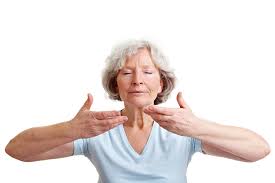It is easy to overlook breathing as a simple way of getting oxygen into our body and removing carbon dioxide. However when you look into it a bit more, you see that breathing has an important effect on our nervous system and more specifically in the balance of our “fight and flight” response with our “rest and digest” functions.
When we take a breath in, our chest rises and we engage our “fight or flight” system. When we exhale the opposite happens and as a result our “rest and digest” system is activated. The timing of our breathing assists the balance of these two functions. Ideally when we are relaxed we should exhale for twice as long as we inhale so that our “rest and digest” system dominates. When we exercise, this ratio changes and as a result our “fight or flight” system takes charge.
Unfortunately when we are stressed, we tend to breathe in a way that causes our “fight or flight” system to become the major system used. This can lead to a host of problems with our digestion, energy levels, recovery, and has been linked with premature ageing. This has caused research into ways to shift from “fight or flight” system dominance towards the “rest and digest” system.
Techniques such as meditation have been studied extensively and shown to help balance out these systems and allow us to shift into “rest and digest” mode. However, what many people don’t know is that simply breathing effectively through the nose has the same effect. Many of us don’t even think about how the air comes into our bodies. With a rising number of deviated nasal passages as well as allergies, it is easy to become a mouth dominant breather.
Breathing through the nose (when compared to mouth breathing) is associated with higher levels of a substance called nitric oxide. Nitric oxide is not only important to activate our “rest and digest” system, but has been shown to positively affect blood pressure levels, our immune system function, blood supply to our cells as well as helping with muscular control and balance.
Breathing through the nose during both rest and exercise has been associated with protection against some of the negative side effects of stress and “fight or flight” system dominance. This can be further enhanced by concentrating on exhaling for twice as long as you inhale. How do you get your air in? Take a breath and see!

